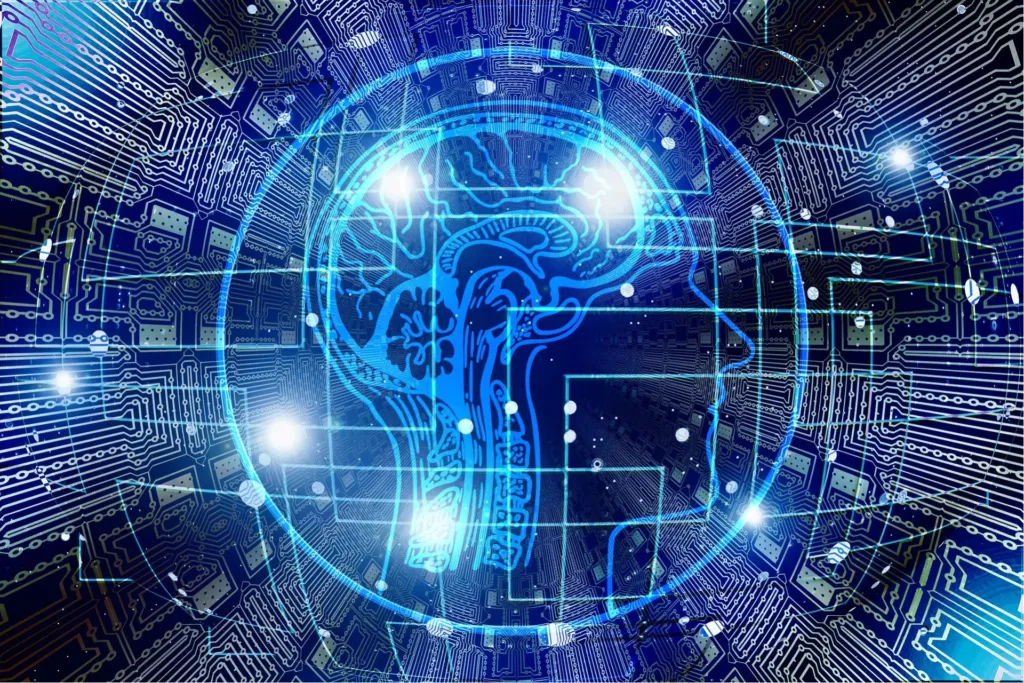Imagine a world where robots aren’t just obedient machines, but rather, they have the ability to learn, comprehend, and even experience emotions. This is the reality that’s making its way to our doorstep today, all thanks to something known as artificial intelligence (AI). Before you start envisioning scenes from Terminator with robots taking control, hold on—AI hasn’t quite reached that level yet. Think of it more like a tech-savvy toddler in diapers, tentatively taking its initial steps toward self-awareness. AI (Artificial Intelligence) has been criticized by Elon Musk

Dreams and Nightmares of AI: From Creative Machines to Pizza-Ordering Toaster Drones
Some people become dreamy-eyed, convinced that these machines will soon be creating novels and composing symphonies. Others lose sleep, imagining a scenario where robots led by Alexa start ordering pizzas to feed their army of toaster drones. The truth, as usual, lies somewhere in the middle of this chaotic spectrum. AI isn’t a magical force; it’s rooted in mathematics.
Picture supercharged calculators processing massive amounts of data, identifying patterns that would escape our notice for ages. This capability allows our devices to perform impressive feats, such as recognizing faces (even after three days without a shower) or suggesting the perfect song to accompany your heartbreak.
The Mathematical Roots of AI: Supercharged Calculators and Impressive Feats
However, there’s a catch: these machines remain oblivious to the subtleties of human emotions. They can recognize your frown, but they can’t feel your sadness. They can inform you about a text from your ex, but they can’t grasp the ache in your gut. So, while AI may become adept at logistics and data analysis, don’t anticipate it holding your hand (unless it’s a high-tech robot therapist, which might be a possibility in the future). The rapid evolution of AI raises valid concerns.
Will jobs disappear like socks in a dryer? Will privacy become a distant memory, akin to dial-up internet? These are questions that responsible adults need to grapple with, and by responsible adults, I mean those with open minds, not pitchforks. This requires collaboration between tech enthusiasts, intellectuals, and everyone in between.
AI’s Emotional Blind Spot: A Catch in the Evolution and the Responsible Approach to Concerns
However, let’s not overlook the positive aspects. AI holds the potential to cure diseases, address climate change, and perhaps even craft a decent haiku (though optimism might be wise). It’s akin to handing a paintbrush to a toddler – messy initially, but who knows what masterpieces might emerge in the end? The key is to approach AI with caution rather than fear.
We need open minds for collaboration between tech enthusiasts, intellectuals, and everyone in between. Because, at its core, AI isn’t a rival; it’s a partner. It’s here to assist us in navigating this complex, beautiful, and messy thing called life. So, let’s lace up our dancing shoes, both humans and machines and learn to waltz together. The future might just turn out to be a beautiful mess after all.
AI (Artificial intelligence) and Elon Musk: A Warning to the World
Elon Musk views AI as one of the greatest threats to humanity, emphasizing the unprecedented scenario where AI could surpass human intelligence.
He acknowledges the difficulty of controlling such advanced intelligence but believes in guiding it in a direction beneficial to humanity.
Musk sees AI as an existential risk and highlights its pressing nature, urging for international consensus on regulating advanced AI.
His hope for a summit on AI regulation is to establish a framework for insight, involving third-party referees to observe and sound the alarm if there are concerns about AI developments.
Musk advocates for a cautious approach to regulations, starting with insight and then proposing fair rules through collaboration with AI companies to avoid inhibiting AI’s positive aspects.